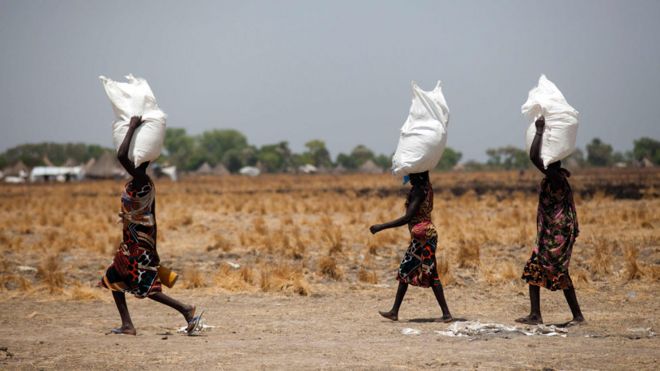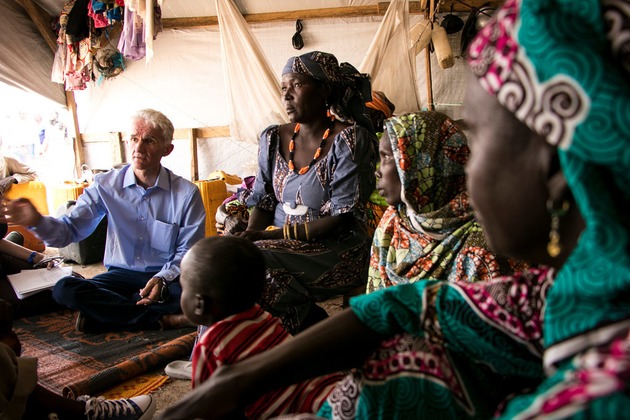MindWars
Diamond Member
- Oct 14, 2016
- 42,227
- 10,743
- 2,040
- Banned
- #1
16 Million People at Risk of Dying as Famine grips 3 African Nations
When He opened the third seal, I heard the third living creature say, “Come and see.” So I looked, and behold, a black horse, and he who sat on it had a pair of scales in his hand. And I heard a voice in the midst of the four living creatures saying, “A quart of wheat for a denarius, and three quarts of barley for a denarius; and do not harm the oil and the wine.”
It almost appears that we can hear the galloping of the black horse of the book of revelation as we are now hearing of new reports that over 16 million people are now at risk of dying of famine in three African Nations. “We are living a horrible drought and a difficult time,” said Shukurow, a mother of a malnourished child. “We hardly have enough to get by, let alone to think of our future.”
-------------------------------------------------------------------------------------------------------------
I wouldn't doubt if this country has this done on purpose, the greedy leaders of the world would love nothing more than to have their natural resources of rare minerals, diamonds, etc.
When He opened the third seal, I heard the third living creature say, “Come and see.” So I looked, and behold, a black horse, and he who sat on it had a pair of scales in his hand. And I heard a voice in the midst of the four living creatures saying, “A quart of wheat for a denarius, and three quarts of barley for a denarius; and do not harm the oil and the wine.”
It almost appears that we can hear the galloping of the black horse of the book of revelation as we are now hearing of new reports that over 16 million people are now at risk of dying of famine in three African Nations. “We are living a horrible drought and a difficult time,” said Shukurow, a mother of a malnourished child. “We hardly have enough to get by, let alone to think of our future.”
-------------------------------------------------------------------------------------------------------------
I wouldn't doubt if this country has this done on purpose, the greedy leaders of the world would love nothing more than to have their natural resources of rare minerals, diamonds, etc.






